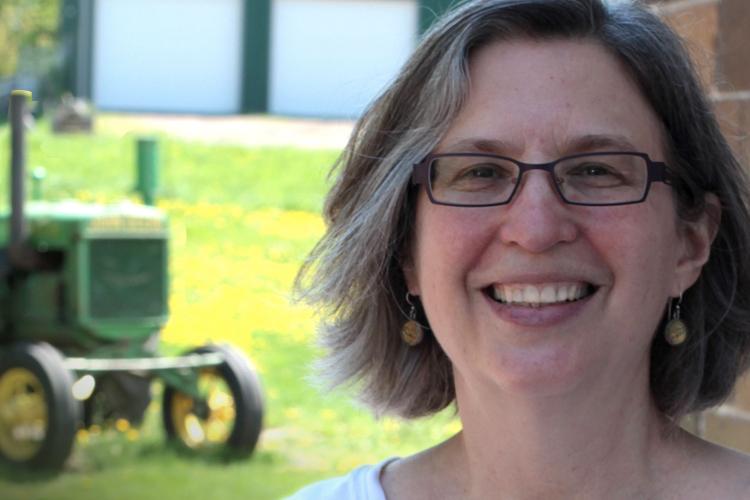50 Farms and No Regrets
Iroquois Valley Farms Organic Farmland REIT
by Teresa Opheim, Senior VP, Iroquois Valley Farms
Iroquois Valley Farms has reached a milestone: This spring we added the 50th farm to our portfolio. Our farmland REIT — honored as a “Best for the World” company from B Labs — provides secure land tenure for 35 farm families working nearly 9,000 acres of farmland. More families will be joining the Iroquois Valley Farms fold soon.
Iroquois Valley Farms starts with the farmer, who comes to us with specific land needs. The company either purchases land the farmer wants, and then rents it to the farmer with a long-term lease. Most frequently the purchased farm is additional acreage for the farmer. We also provide mortgage financing to help farmers purchase the land themselves. All of our farmland is organic and beyond, or in transition to organic. All of our farmers run their own businesses.
We have seen strong and steady growth in the value of our investment portfolio over the last 11 years. Original investors in 2007 have received an 11 percent internal rate of return. We just launched a new offering, through which we will raise $20 million to help fund a long pipeline of farmers wanting our help. We also offer Soil Restoration Notes™ to investors, with a portion of returns going to help our farmers transitioning to organic.
We are thankful for the passionate commitment of our 300-plus investors, people and organizations all committed to healthy food, living soil, carbon sequestration and vibrant communities of plants and animals. People like Sallie Calhoun, the founder of the #NoRegrets Initiative, which includes a wonderful set of investment principles. Those principles describe our approach perfectly:
Your investments should move towards healthier land in the short- and medium-term.
Iroquois Valley Farms invests in farmers who eschew chemicals. Farmers like the Lepleys in Ohio, who are transitioning 400 acres from a dead soil monoculture to certified organic production. And the Weiks in Minnesota, who seeded bare ground to pasture, thereby reducing erosion while they raise high quality pork.
Each of our farm families follow basic soil health principles: They (1) use plant diversity to increase diversity in the soil; (2) manage soils more by disturbing them less; (3) keep plants growing throughout the year to feed the soil; and (4) keep the soil covered as much as possible.
As a result, they are reporting substantial increases in soil organic matter, a key soil health indicator. Iroquois Valley Farms has provided refinancing for the Beyer Family in Minnesota, who became very serious about holding their soil in place after receiving 17 (!) inches of rain in one day in 2008. Rory Beyer tested soil in one spot on the farm in 2009 and found a paltry 1.7 percent organic matter. In 2017 – after years of pasture and intense rotational grazing – the organic matter is 4.4 percent. “You can build organic matter in the soil, and you can do it fast,” he says.
Your investments should be structured to avoid exit pressures that would jeopardize medium- to long-term viability.
To us, “long-term viability” is keeping farm families on the land for hundreds of years. We have purchased land and provided financing for farm families now in their sixth generation of farming.
There is no one else offering what we offer. Our terms are truly supportive: Our farmers can purchase the land after they rent for seven years, but they do not have to if the timing is not right for them. Rent is set lower during the transition to organic certification, and then increases during the farmers’ highly successful years. Those who receive mortgage funding from us pay interest only during those tough early years. Our investors make a seven-year commitment, which provides further security to our farmers. Our large pool of investors means our farmers are not in jeopardy of losing their land tenure if some chose to redeem their shares.
The read the rest of Teresa's blog and learn why your investments should increase diversity of various kinds at various scales and how it should fill gaps in the system - all here - https://greenmoneyjournal.com/50-farms-and-no-regrets/
========



